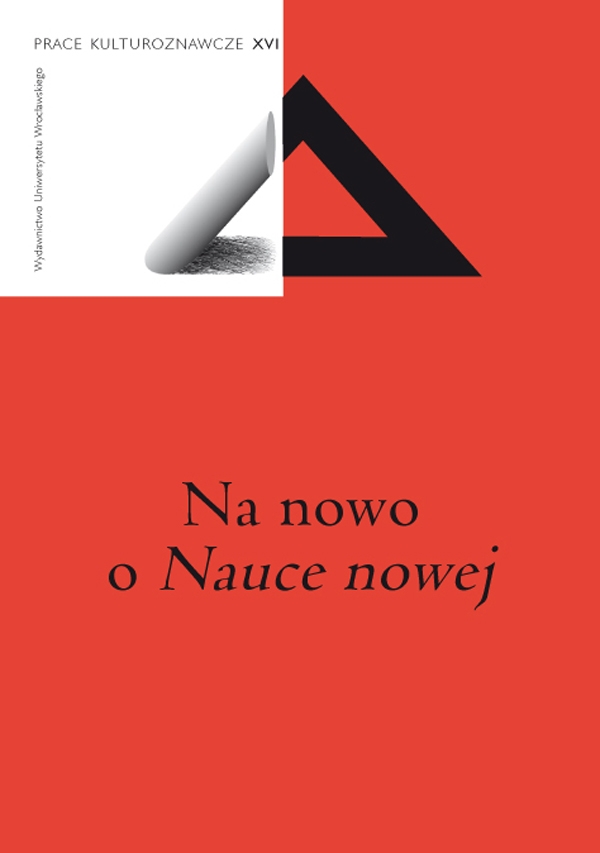

Strony redakcyjne

“The book of culture” and its authors
Our point of departure for seeking to understand the meaning of Providence in the works of Giambattista Vico is an essay by Samuel Beckett, who sugests that Vico writes with his “tongue firmly planted in his cheek.” The binary division in the modern reception, of the “secular Vico” and the “theological Vico,” “leftist” or “right-wing,” “Enlightenment” or “anti-Enlightenment,” most often obscures the historical background of the work itself, as well as the Neopolitain’s texts themselves. Our main thesis attempts to go beyond “dialectical” thinking: there is no way to understand the function of Providence in Vico’s thought without considering the issue of theodicy. Although Vico does not use this concept in the sense invented by Leibniz 1710, he does draw directly from authors who devoted a great deal of space to defending God from accusations of lacking omnipotence, or possessing ill will. H. Grotius, P. Bayle, and others deliberated the notion of God in relation to evil by choosing various defensive strategies. Vico finds a new path in this problem, “concealing” the work of Providence in the history of mankind. In Part One I present the creation of a metaphor: The Book of Culture. In Part Two I outline the theme of Providence and the issue of its function. The last part, entitled The Image of Providence, pertains to the frontespizio and the explanation of the work contained at the beginning of the 1744 edition. Throu gh the immanent concept of Providence the weight of responsibility is shifted onto man, though not in the theological sense found in Augustine, through the concept of Original Sin, but in a historical sense. Thus Providence in New Science achieved a kind of immunity, sacrificing none of its impact on creation.